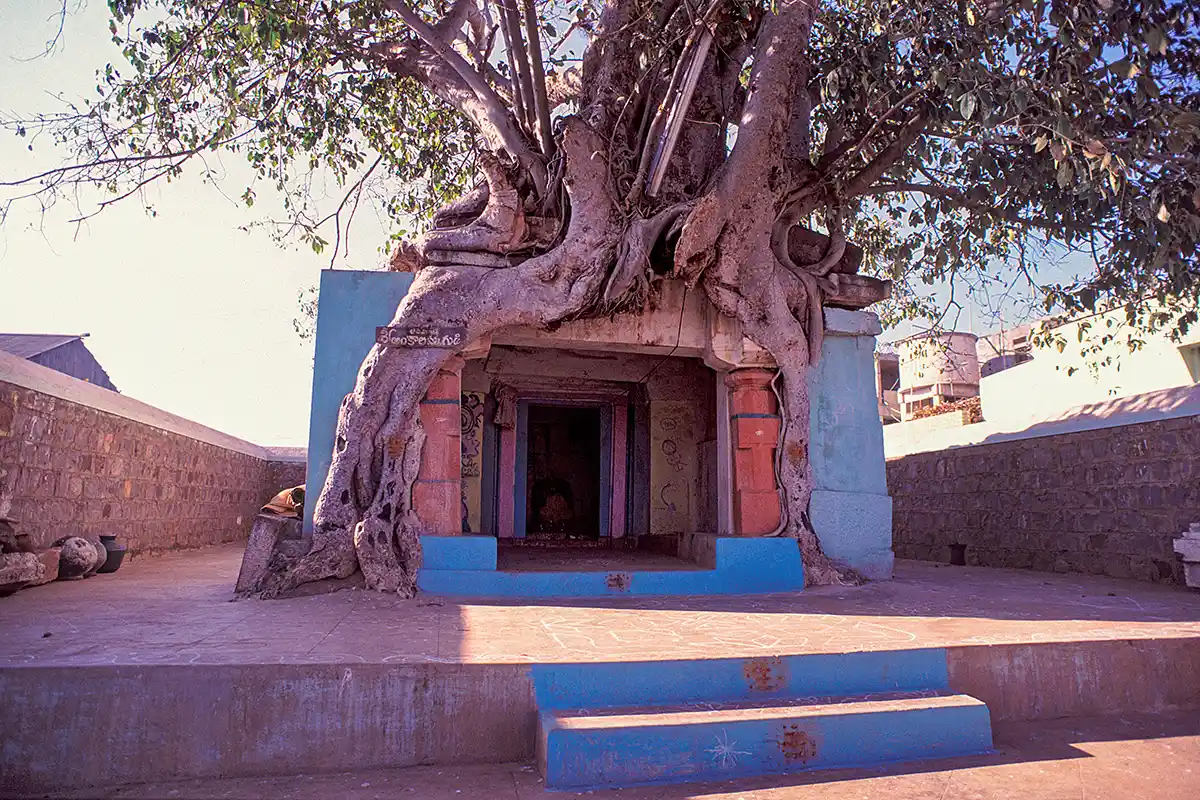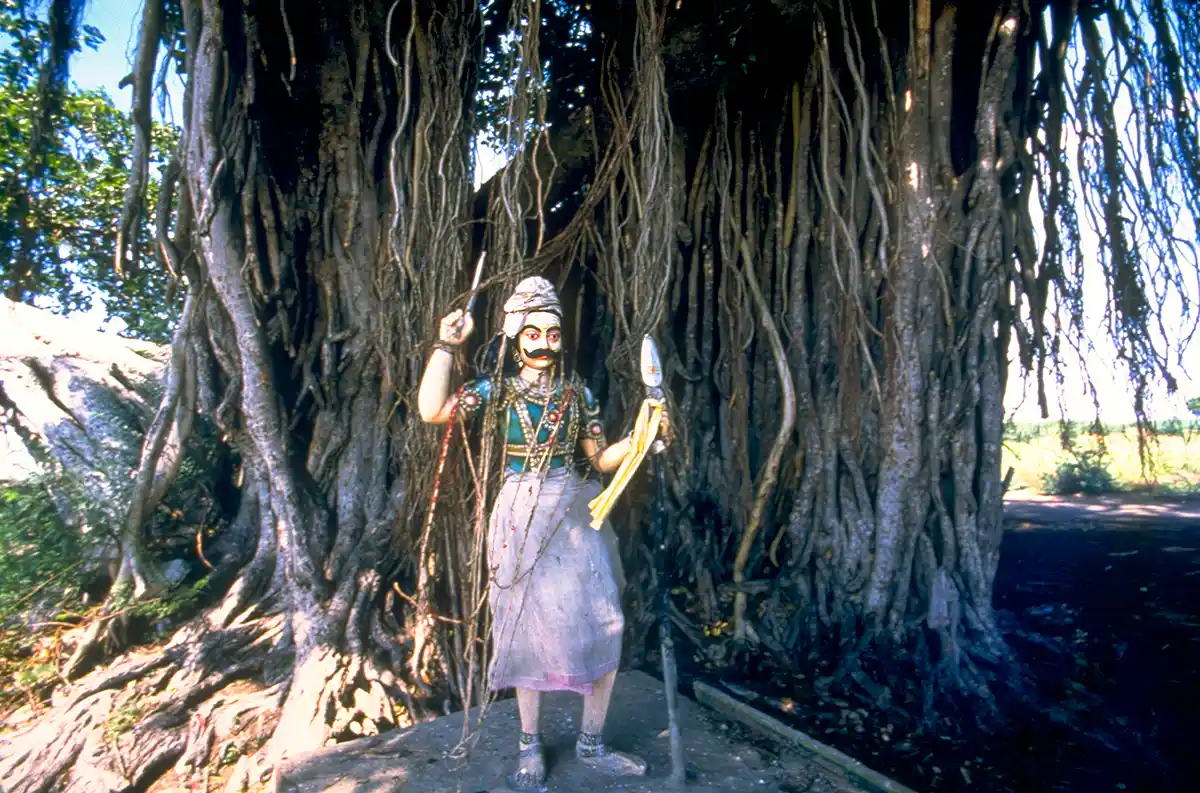Pagan Temples
While India is notable for its grand temple complexes, it is important to understand that each temple had its genesis as a small shrine of rural folk. Long before pilgrims came to visit from distant lands and long before royal patronage enabled the construction of huge, stylized temple structures, river sites, springs, caves, trees, and rocks were known by local people to be the dwelling place of various earth spirits. The first shrines were simple thatch or wooden enclosures built over a sacred spirit stone or beneath a holy tree. These structures were primarily utilitarian in that they delineated the perimeter of the sacred space and facilitated the gathering of the local folk for ritual purposes.
The enclosures were not initially considered sacred - they only housed the sacred - yet over time, the structures also came to be regarded as sacred. The rock of the holy enclosure was considered the static, earthly, 'masculine' aspect, the sacred tree was the dynamic, fertilizing, 'feminine' aspect, and together they represented the creative foundation of life. The mythic serpent lived below the earth of the sacred stone and in the branches of the holy tree. Winding its way sinuously through the two realms, the mysterious and long-living serpent is understood to represent both realms and, more importantly, to connect the two energetically. Throughout the great expanse of ancient India, from the Dravidian south to the Indus Valley civilizations of the north, the serpent is thus associated with the magical sites of the hermaphroditic earth spirit.
For additional information:

Martin Gray is a cultural anthropologist, writer and photographer specializing in the study of pilgrimage traditions and sacred sites around the world. During a 40 year period he has visited more than 2000 pilgrimage places in 160 countries. The World Pilgrimage Guide at sacredsites.com is the most comprehensive source of information on this subject.


